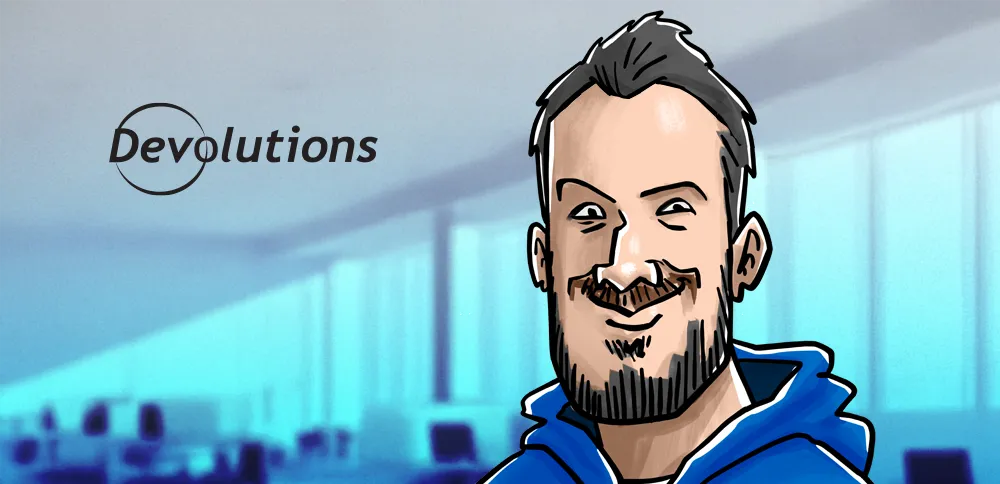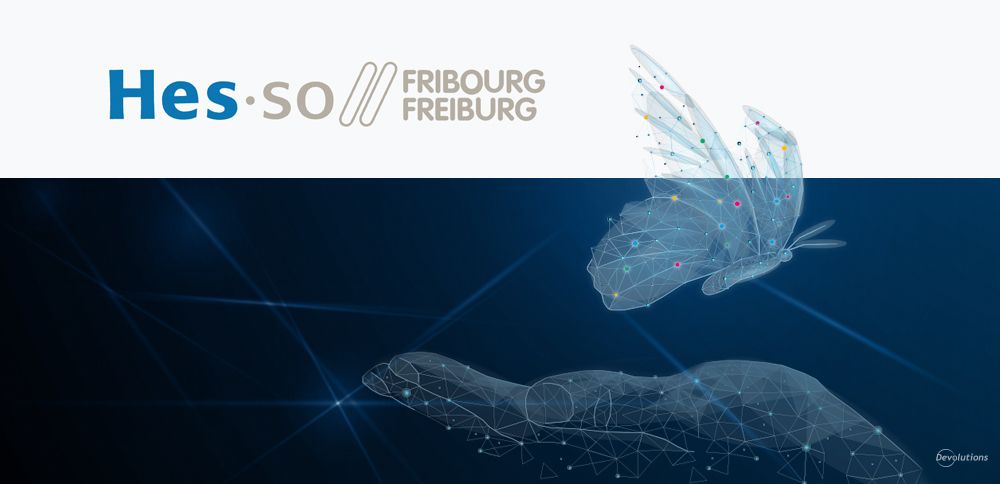“RDM opens up a lot of options, and makes things much easier to manage … Everyone we have dealt with has been very knowledgeable, very helpful, and very friendly … RDM is really good. It’s solid.”
– Derek T., Server Engineer
At Devolutions, we are passionate about creating and improving solutions that help companies around the world increase visibility, productivity, efficiency, security, and governance.
But there is something that we enjoy even more. No, it is not a hilarious new Sysadminotaur comic (although this is high on the list!). Rather, it is when we have the opportunity to connect directly with the smart, hard-working IT professionals who trust our solutions each day.
Recently, we had the privilege of chatting with Derek T., an experienced server engineer at one of the largest advisory, assurance, and tax firms in the United States. The firm also has several offices around the world, and more than 4,000 employees. Derek is a valued Remote Desktop Manager user and has been part of the Devolutions community for nearly a decade.
Below, you will find an overview of our conversation. Our questions are the headings, followed by Derek’s responses.
Can you please tell us a little about your background and role?
I have been in the IT field since 2011. I mostly deal with the physical server infrastructure and virtual machines and the underlying storage, as well as some Active Directory stuff, file server permissions, and things like that. You could say that I do a little bit of everything.
When did you first learn about Devolutions?
I discovered Devolutions around 2014. I had been using Microsoft RDCMan for a few years. It was okay, I suppose, but it left to be desired, and it wasn't really actively developed anymore. I think there has only been a couple updates since then, but nothing major. I recall looking at a handful of solutions, including RoyalTS. A co-worker of mine at the time had some good things to say about RDM, so I gave the free version a try.
How would you rate your initial experience with RDM?
Back then, I was working at an MSP. I was very impressed with RDM. It was really handy for all of our different clients. I especially liked being able to automatically connect to a VPN, and from there connect to whatever resource I wanted. That was pretty huge for me at that time. I also liked the console integration and the various plug-in options. I convinced my boss to purchase a license, which gave me even more features to play around with. You could say that I’ve been a big Devolutions and RDM fan ever since then.
How many people are using RDM in your company?
When I joined my current company a few years ago, I introduced my boss to RDM and after a while he agreed to purchase a license for our team. Once he had a closer look at the features and advantages, he thought RDM was such a good idea, that we ended up getting licenses for the entire IT department across all of our infrastructure engineers, database admins, security teams, and a handful of other teams. That was about two years ago. Right now we have about 40 people using RDM.
What are some of the ways that RDM is helping you and your teams?
RDM has been a huge help in keeping things organized. Everybody has access to the same connections, more or less. We have about 1200 VMs that we're managing. There's probably a couple dozen SQL servers, and so it has helped the DBAs keep track of things.
RDM has also been a big help with onboarding new users to certain teams, because as soon as they're onboarded, all we have to do is put them in an Active Directory security group — which happens by default. So they have access right off the bat, and have all the connections they need. If they're in a probationary period, we can easily change some of the stored credentials that we keep in the vaults and give them access later if need be.
Would you share a little about your RDM roll-out and implementation experience?
It has been pretty smooth sailing. I set up vaults for each of the teams, and then I basically handed them the keys and said: “Hey, here's your vault. I created all these connections for you. Here's how you use it. Here's an overview of how to use it. And here's some tips and tricks that I've learned over the years that I think would be helpful.” I haven’t had any complaints or issues from anyone using RDM.
We have a pretty wide spectrum of users now. Some people are IT professionals like me, while others aren’t super technical. They just use RDM for basic remote desktop to this server or that server. Then there are some users who look at all the different features, and their eyes open up and they go: “Wow, I didn't realize there's so much that we could do. There's so much I was missing out on.” And then you've got people in the middle who just really enjoy having everything all in one place, and that's about it. And that's okay, too.
What has your experience with our support team been like?
It has been great. There was one situation very early on when we were still figuring things out. We were building out a bit and we had some issues with AD authentication. Devolutions engaged some of their resources, and then came back to us and said: “Give this a try.” We tried it, and it worked!
Other than that, I think there might be two support cases that were resolved without issue. Everyone we have dealt with has been very knowledgeable, very helpful, and very friendly. I highly recommend the support. It has been great. It is also good to know that if we do need help, then we can contact our assigned Customer Success Manager.
Would you tell us how you are integrating RDM with Devolutions Server?
At the moment, we are using Devolutions Server for storing all the connections. In the future, we are probably going to explore the possibility of adding privilege access management in general throughout our user base.
We are very grateful for your time, and for sharing your experience with Devolutions and RDM. Is there anything else that you would like to add?
In general, I like seeing how Devolutions is always adding stuff to RDM. I occasionally see requests on the forum, which are then implemented very quickly. I often think: “Hey, that was a really good idea, I should have thought of that sooner, but I’m glad to have it as a feature now.”
The last thing I would add is that you should keep doing what you are doing, and stay focused on your strengths. Don’t go around trying to compete with this or that. Stick with what you’ve got. RDM is really good. It’s solid.





